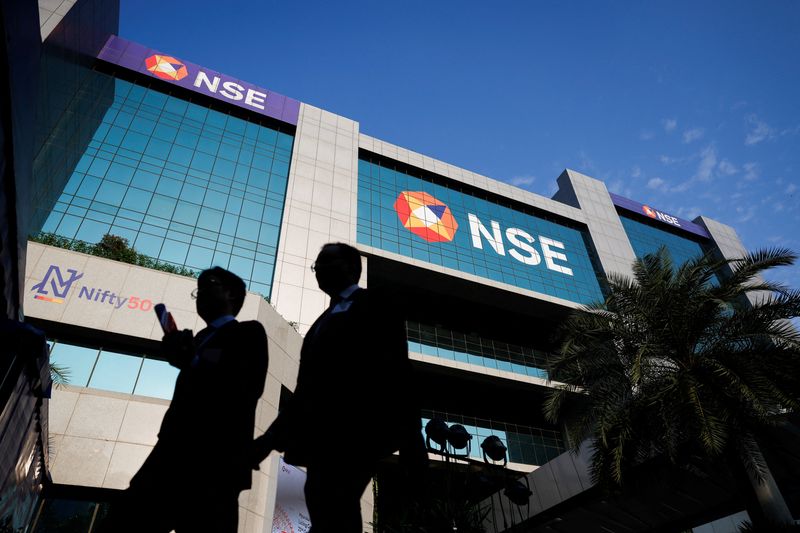By Jaspreet Kalra
MUMBAI (Reuters) – International traders are prone to discover relative security in India’s monetary markets from the spillover of Donald Trump’s financial insurance policies, together with from any protectionist commerce insurance policies that would spark rising market volatility.
Trump’s decisive election victory final week and his impending return to the White Home subsequent month has raised important uncertainty for traders.
Nevertheless, India’s sturdy financial progress, restricted publicity to Chinese language and the U.S. client market, sturdy native urge for food for equities and a central financial institution devoted to making sure forex stability will bolster the nation’s attraction amid world unease, traders and analysts say.
Shares in Asia’s third-largest economic system are additionally prone to discover assist from sturdy home shopping for attributable to Indian firms’ restricted reliance on export revenues.
That is important as markets concern Trump will reintroduce his ‘America First’ insurance policies, elevating the spectre of a worldwide commerce conflict.
China is on the frontline of danger as the previous president has threatened tariffs of 60% or extra on all Chinese language imports, which is prone to heap extra stress on the world’s second-biggest economic system.
Tariffs on China are anticipated to negatively affect export-oriented Asian economies, in line with analysts at Societe Generale (OTC:), who see India as higher positioned than Korea and Taiwan to deal with the fallout.
“Without any major fiscal announcement, China is likely to face downward pressure from Trump’s victory,” mentioned Sat Duhra, a Hong Kong primarily based portfolio supervisor on the Asia (ex-Japan) fairness staff at Janus Henderson Traders.
Some traders had pivoted away from India to purchase Chinese language shares final month however “there could be a reversion back to India in a quicker than expected time frame” due to its standing as a secure haven, Duhra mentioned.
Whereas international traders pulled out a document $11.2 billion from Indian equities in October, home institutional traders’ inventory purchases rose to an all-time excessive of about $12.7 billion in the identical month, limiting the benchmark indexes’ fall.
Home traders see India benefiting from provide chain diversification of U.S. firms, in sectors like digital manufacturing, chemical compounds, and prescription drugs, mentioned Trideep Bhattacharya, president and chief funding officer for equities at Edelweiss Mutual Fund.
India’s financial fortunes have additionally shifted for the reason that final Trump presidency when GDP was slower versus a sturdy 8.2% tempo in the newest monetary yr ended March 2024.
One potential dampener for world traders is the elevated valuations of Indian equities.
The MSCI India index, which covers roughly 85% of India’s fairness belongings, trades at a median 12-month ahead price-to-earnings (PE) ratio of twenty-two.8, properly above the PE ratio of 12.08 for MSCI’s rising market shares.
Zurich-based Vontobel Asset Administration is cautious on Indian equities however is bullish on the nation’s sovereign bonds and finds the rupee to be an interesting carry commerce forex.
Indian authorities bonds symbolize a gorgeous diversification whereas the central financial institution’s FX coverage of stabilisation makes the rupee among the best danger adjusted carry trades, Carl Vermassen, a hard and fast earnings portfolio supervisor at Vontobel, mentioned.
The nation’s authorities bonds joined the JPMorgan world rising market debt index earlier this yr and are set to be included in two extra world bond indices in 2025.

The rupee is “blissfully uncorrelated to other EM currencies while at the same time presenting a high beta to the dollar. This makes it a unique EM asset,” Vermassen mentioned.
Whereas the rupee hit a document low on Nov. 6 as U.S. elections pointed to a Trump comeback, its 0.2% decline was muted in comparison with regional friends which fell as a lot as 1.7%.




